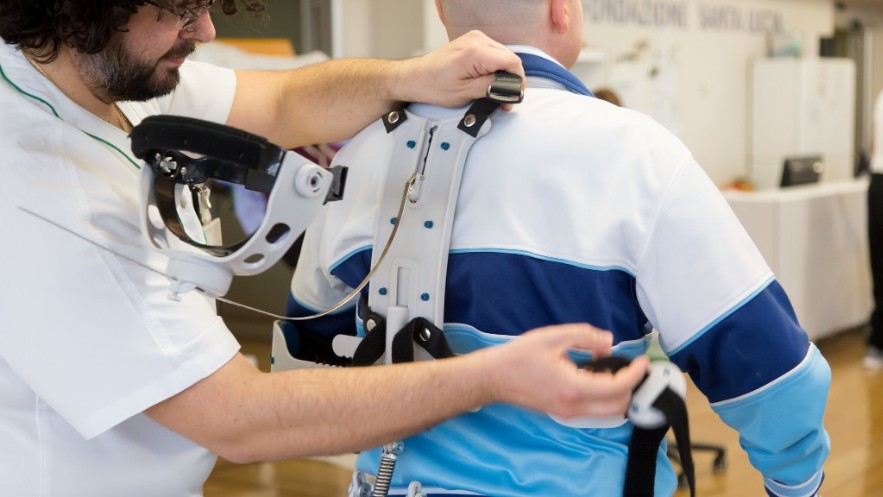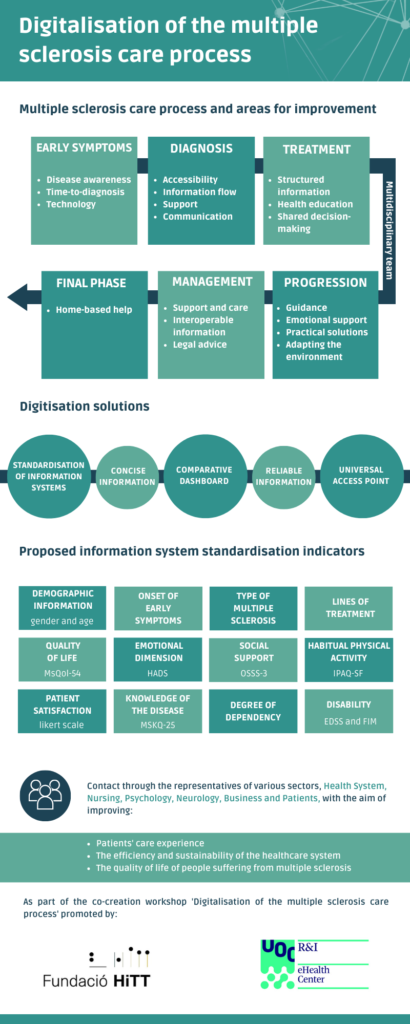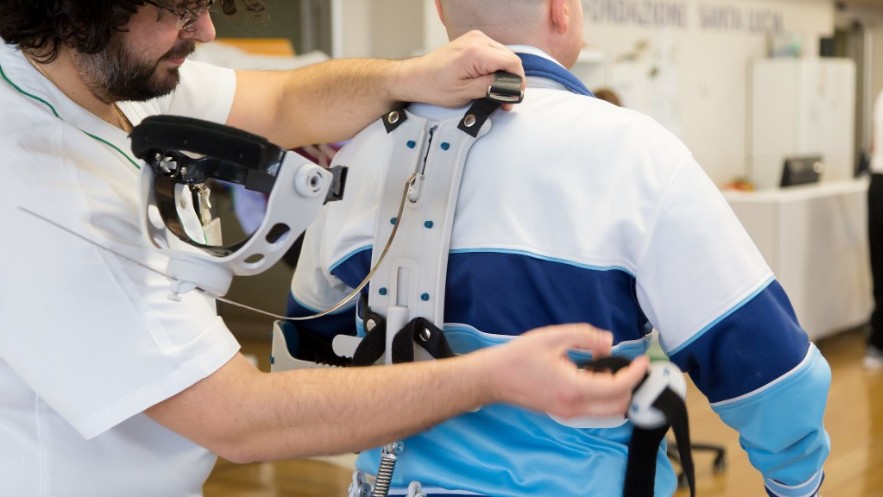
Researchers at Fundació HiTT and UOC publish a guide on how to improve patient care while increasing the efficiency and effectiveness of the healthcare system.
Multiple sclerosis (MS) is a chronic degenerative autoimmune disease of the central nervous system. Around 1,800 new cases are diagnosed in Spain each year, mostly among people under the age of 40, and it is the second ranked cause of disability among young people after traffic accidents. The person usually receives the diagnosis of the disease at a time in their life when they are embarking on important projects, and it creates a lot of anxiety and uncertainty about their future; this means that the information they receive is crucial, as is their access to the various specialists and treatments. MS is also a challenge in the healthcare system, which has to provide treatment for these patients, as it is a chronic disease, it has a major economic impact, and it involves a wide range of social, health and psychological needs, which are cross-disciplinary.
Improving the care that these patients receive during the course of their disease not only involves clinical aspects, but also improving the care they receive. A multidisciplinary team of professionals made up of specialists in nursing, neurology, psychology and the healthcare system, together with patients’ associations, took part in a co-creation working group organized in late 2021 by the Fundació HiTT (Health Innovation Technology Transfer) and the UOC’s eHealth Center, aimed at identifying precisely what the main needs of both patients and the healthcare system were, and how digital transformation in the healthcare system could help to address them.
As a result of this joint approach, they have presented a document which includes a series of proposals for carrying out such digital transformations, and which offers guidance for providing solutions at each stage of the process.
“The aim is to use this digital transformation to greatly improve care for patients, their quality of life and to empower them, while increasing the efficiency and effectiveness of the health system,” said Carme Carrion, the scientific coordinator of the UOC’s e-Health Center.
The idea is for “the individual to go to the doctor when they need to and not when they are due to go, requiring constant, careful monitoring of the variables that identify their health process. The professional gets involved when an alarm is triggered,” she added.
Centralized, accessible information
In their report, the experts began with a comprehensive map of the experience of patients and healthcare professionals, as well as their needs at each stage, from diagnosis to the administration of treatment, the appearance of attacks and management of the disease, until the final stage, when the disease is very advanced, and the end of life.
“All these different phases must be taken into account when proposing digitalization solutions,” said Oriol Solà-Morales, president of the Fundació HiTT. “For example, centralizing the information and making it structured and accessible to healthcare professionals and users,” he added.
Access to information is one of the core areas of the proposal by the UOC and the Fundació HiTT. The document, which should be used as a guide, stresses that it needs to be unified and that it must be accessible through a one-stop shop. “The system is not yet sufficiently integrated to enable data to be shared between everyone involved in the management of multiple sclerosis, or any other pathology,” said Carrion.
While some initiatives in recent years have attempted to provide solutions for the healthcare sector, many have not fully met the needs of patients and the healthcare service. “There is no market for the digital sector. There are some disorganized projects, but they have not established what each other’s needs are,” said Solà-Morales. “This means that the health services sector needs to start talking about what its needs are, in order to be able to create platforms that are fully functional,” he added.
Raising awareness of the project
Both the eHealth Center and the Fundació HiTT believe that this outline for work and guide for the digital transformation in relation to multiple sclerosis could be applied to other diseases involving similar scenarios and needs. They aim to repeat the co-creation working group next year, applying the format to a mental health disorder.
They will now focus on promoting this guide, which, as well as being presented at conferences as per usual practice, will be sent to patient’s associations, healthcare provider systems and digital systems and to the media in the coming months. “We want to raise awareness of this project and to make it available to people who are able to make decisions, so that they can use it for themselves. And so that we all move towards this digital transformation together,” concluded Carrion.


